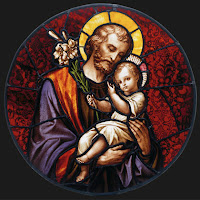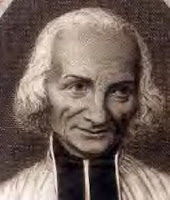
Praised be Jesus, Mary, and Joseph!
The sins of humankind were the reasons for the flood that devastated the entire earth in the time of Noah: “The LORD saw how great the wickedness of the human race had become on the earth, and that every inclination of the thoughts of the human heart was only evil all the time.” (Gen. 6:5) The flood was to annihilate evil by destroying all people and the earth with them. And so, rains fell for 40 days and 40 nights killing everyone and everything apart from the creatures which were with Noah’s family in the ark. When the floods receded, everything was supposed to start anew with God’s covenant that never again will he devastate the entire earth with a flood. However, sin was not washed away by the flood. Soon, Ham, one of Noah’s sons, will dishonor his father and his descendants will build the tower of Babel as a monument to their pride.
The flood waters “prefigured baptism, which saves you now. It is not a removal of dirt from the body but an appeal to God for a clear conscience…” Baptism does what the floods failed to accomplish. The flood waters annihilated evil men but not sin itself. Baptism brings about the forgiveness of sin. How could this be? This is made possible because “Christ suffered for sins once, the righteous for the unrighteous, that he might lead you to God. Put to death in the flesh, he was brought to life in the Spirit.” This is the implication of his fasting in the desert: “The Spirit drove Jesus into the desert, and he remained in the desert for 40 days, tempted by Satan. He was among wild beasts, and the angels ministered to him.” Ordinarily, we do not challenge enemies in their territory. Just look at that Filipino boxer who won a fight in Argentina. He and his staff were mauled by the displeased local crowd. But Jesus went into the desert which was notorious for being the devil’s abode. The desert was the enemy’s turf. By his incarnation, he entered into this world, into this arid place that repays man’s labor with thorns and thistles. He entered into enemy territory with only one purpose in mind: to wrestle with the devil for the salvation of man. He was among wild beasts yet was kept unharmed because the angels ministered to him. The beasts did not harm him but we crucified him and angels did not prevent us from doing so for in his suffering and death occurred the real combat. On the Cross, Christ conquered sin. Having been put to death, the Righteous One’s side was opened by a soldier’s lance from which gushed forth an abundant fountain of mercy: the Spirit-filled waters of baptism. Thus, the prophecy of John the Baptist was fulfilled: “He shall baptize you with the Holy Spirit and with fire.” The Spirit filled baptismal water floods the whole world and washes away the sins of those who would dare plunge themselves into it. Blessed are we who emerged from the waters of baptism for we are now able to appeal to God with a clear conscience.
And we should strive always to maintain a clear conscience by constantly heeding to Christ’s words: “Repent, and believe in the gospel.” Let us not be like Ham who lent a willing ear to the devil’s temptation. Let us not be puffed up in pride like the builders of the Tower of Babel. Rather, let us keep ourselves humble, always sincerely repenting of our sins, always willing to listen to the Gospel. Let our lives not be caught up by the entertainment and pleasures of the world. Rather, let us lead penitential lives, always vigilant against the devil’s temptation and always vigilant for the Lord’s will.
“We must flee from creatures, withdraw into solitude, and keep a profound silence, and through these things, enter into the dispositions of Our Lord Jesus Christ. It is not necessary that we should go looking for Him in the deserts of Palestine, where once He withdrew and fasted for 40 days. He is solitary in the desert of the Most Holy Sacrament: there He has taken upon Himself the sins of all men, becoming (for our sakes) the penitent of the Eternal Father.” (Mother Melchtilde de Bar, Benedictine)
O Mary conceived without sin, pray for us who have recourse to thee!




















